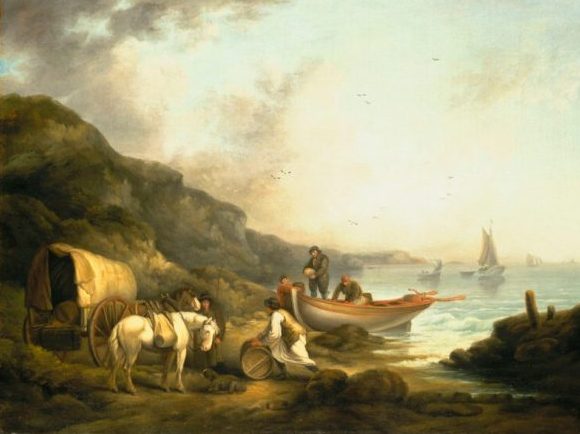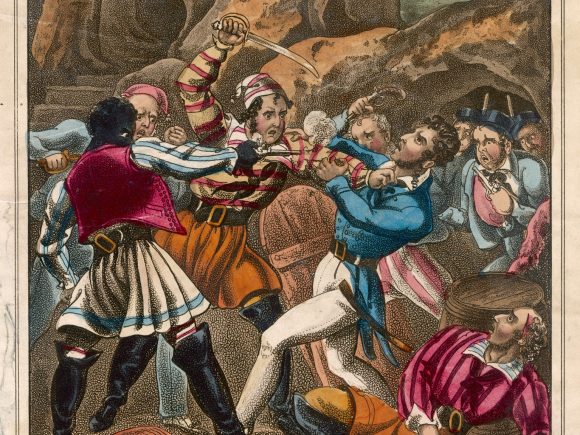
Smugglers History
Here at the Smugglers Cottage of Deal, we love history. From the 17th to the early 19th century, Deal was like a Wild West frontier town. Smugglers and boatman (ruthless men not known for their compassion and understanding) reigned supreme. The boatman were a law unto themselves, and the looting, pirating and plundering of ship wrecks was common practice. The smugglers used secret tunnels and underground hiding places to steal their goods away from ships. Many of these tunnels remain hidden away, especially in the seafront conservation area where Farrier Street is located.
“Owlers”
The earliest record of smuggling was in 1617 when “Owlers” (an early nickname for smugglers from Sandwich who only operated late at night) were caught loading wool aboard a Dutch vessel – this at the time was a profitable evasion of the wool tax.
Smuggling was a big business and to stop the smugglers, customs officers were stationed in Deal. The animosity between the two was tremendous. Fighting between the smugglers and the customs officers was sometimes so severe that people of Deal were afraid to go out for fear of being hit by a stray musket shot! Attempts were often made to blow up the customs house and seize back the confiscated goods. Officers, if caught on their own by smugglers, would often be beaten up.

Under Attack
At the first sight of a ship in trouble the boatman were quickly into their boats and off to loot the stricken vessel. To the smugglers, the cargo was worth more than the lives of the seamen who were often left to drown.So many ships were being attacked and plundered that something had to be done. Prime Minster William Pitt was often outraged at the smugglers activities. In January of 1784, Pitt sent in troops after being informed that due to unusually stormy weather most of the boats were drawn up high and dry on the beach. The soldiers once in position were given the order to set light to all the boats and burn them where they lay. The boatmen were mortified, not only at the wicked destruction of their boats, but also at the loss of their livelihood. The army were not welcome in Deal for quite a while after this.

Back to Business
The boatman soon rebuilt their boats and it was not long before they were back to their old ways. The boatman did have their uses. For a fee they would guide vessels past the treacherous Goodwin Sands. However, they would watch with glee any ship floundering on the sands that had refused to pay and instantly launch their boats to loot it.
Finally, at a time of war they would also be used as spies, reporting back to naval intelligence any French naval activity they saw.

If you would like to find out more or make a booking please Contact Us
